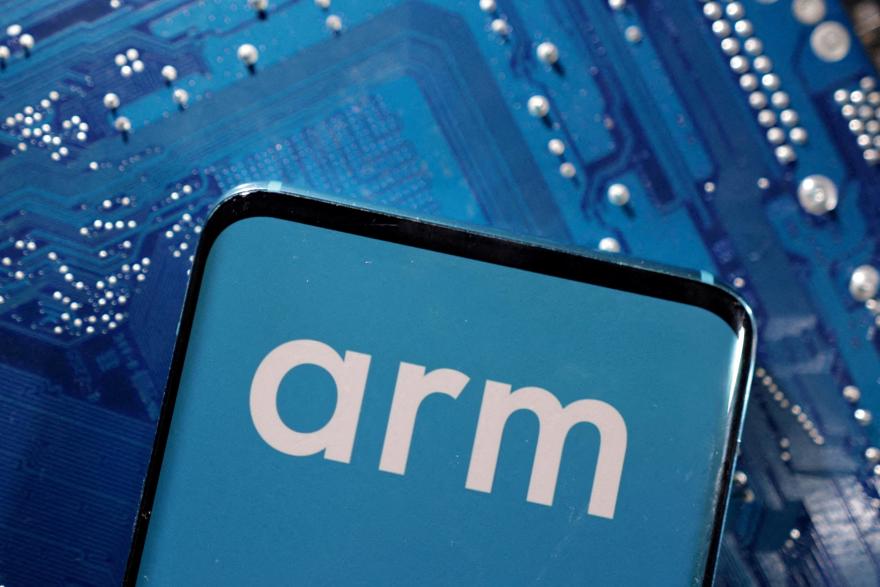THE Pentagon pulled out of a plan to spend as much as US$2.5 billion on a chip grant to Intel, sources familiar with the situation said, putting the onus on another federal agency – the Commerce Department – to make up for the shortfall.
The move threatens to limit the total amount that Intel has been expecting to get in federal funding, setting up a contentious situation, said the sources, who asked not to be identified because the deliberations are private. Beyond the defence money, Intel has been seeking incentives worth more than US$10 billion from the Chips and Science Act.
The defence funding was part of a spending package that President Joe Biden signed into law over the weekend, and it allocates US$3.5 billion for Intel to produce advanced defence and intelligence-related semiconductors.
Commerce, which disburses Chips Act grants, had previously only been responsible for US$1 billion of the cost. But the Pentagon, which initially promised to cover the rest, scrapped that plan in the days leading up to a government funding deadline, said the sources. Lawmakers then directed Commerce to use other Chips Act funds to make up the balance.
The shortfall is disrupting plans to distribute money from the Chips Act, a landmark piece of legislation meant to revitalise the domestic semiconductor industry. The change could mean a greater share of Intel’s Chips Act funds is devoted to military uses, rather than commercial ones. The defence deal sets up Intel as a dedicated supplier of chips for military and intelligence needs, designating a so-called Secure Enclave within the company’s factory.
It is unclear whether the Secure Enclave funding will be swallowed into Intel’s total awards – meaning the company gets less overall money than expected – or come on top of what Intel was already set to receive, leaving less for everyone else. The Secure Enclave approach has rankled fellow chipmakers such as Globalfoundries, which also is getting Chips Act funding.
Intel shares slipped as much as 1.7 per cent in late trading after Bloomberg reported the news. They had closed up less than 1 per cent at US$45.24 earlier on Tuesday (Mar 12).
In a statement, a Commerce Department representative said that a decision on the Secure Enclave award has not yet been made and is being evaluated through a separate process.
“The Department of Commerce looks forward to continuing to work with Congress on implementing the Chips and Science Act in a manner that promotes our economic and national security,” the representative said, without commenting on specific companies.
Jeff Jurgensen, a Pentagon spokesperson, said the Defense Department will continue to work with partners across agencies and Congress to support the implementation of the Chips Act and “deliver a secure capability to meet our microelectronics requirements”.
“It would be premature to speculate on either a vendor or the nature of the capability at this time,” he said.
Negotiations are still underway, the sources said. Intel declined to comment, and the White House did not respond to a request for comment.
It is the latest complication for the Chips Act, which became law in 2022. The Commerce Department has emphasised that it does not want to give any company a penny more than needed. The agency only has US$39 billion in grant funding to build a portfolio of projects spanning large-scale manufacturing, smaller-scale supply chain efforts, and commercial research and development.
That is a lot of taxpayer money, but it is a drop in the bucket for the overall chip industry. Advanced chipmakers alone have requested more than double the money set aside for them. And more than 600 firms have expressed interest in federal grants. The Commerce Department also has a loans and guarantees pool worth US$75 billion, but the companies are not all interested in that financing.
‘Very Soon’
Intel chief executive officer Pat Gelsinger has told investors that the government money will help fund the chipmaker’s ambitious turnaround effort, which includes US$20 billion investments in Ohio and Arizona. He aims to increase capacity and manufacture semiconductors for other companies – alongside an endeavour to restore Intel’s technological prowess.
It is unclear when Intel’s award will be disclosed. Gelsinger said at a company event on Feb 21 that it was coming “very soon”. The announcement was originally supposed to come before the Pentagon funding showdown, according to sources familiar with the matter.
The Commerce Department has already announced three awards to firms that manufacture older-generation chips, including a US$1.5 billion grant to GlobalFoundries, which is among the top suppliers of older processors to the US military.
GlobalFoundries lobbied against the defence provision for Intel as government funding bills moved through Congress last week, according to people familiar with the matter. Some lawmakers have also expressed concerns about relying on just one company – Intel – to make cutting-edge chips for the most sensitive US government applications.
Right approach?
In a statement, GlobalFoundries said it does not believe Intel’s sole Secure Enclave designation is the right solution.
“GlobalFoundries has been a secure chip provider for decades,” a company spokesperson said. “We appreciate the US government’s effort to address the challenge. We have a proven approach.”
The Chips Act received bipartisan support, fuelled by concern that a faltering domestic semiconductor industry was a national security problem – particularly in light of Washington’s growing rivalry with Beijing.
Production of advanced chips is currently concentrated on the island of Taiwan just off the Chinese coast. Intel, which once led the industry and is one of the few companies that still produces the components in the US, has fallen behind rivals such as Taiwan Semiconductor Manufacturing and South Korea’s Samsung Electronics. BLOOMBERG




